Address system of England
- Address system of England
- Recipient Name
- Street Adress
- Locality or District
- Town/City
- Postal Code
- County
- Address Example
Address system of England
An addressing system is a structured and standardized method used to identify and locate specific places, individuals, or entities for communication, navigation, and delivery. It typically involves a set of components that, when combined, create a unique address that can be easily understood by postal services, courier companies, navigation systems, and other relevant parties. Addressing systems play a crucial role in ensuring accurate and efficient communication, package delivery, and navigation.

In the context of physical addresses, an addressing system includes components such as recipient names, street names, house or building numbers, locality information, city or town names, postal codes, and, in some cases, additional geographic identifiers like counties or provinces.
The official address system in England follows a structured format that includes various components to ensure accurate mail delivery. Here’s a breakdown of each component along with an example:
Recipient’s Name: This is the full name of the person, company, or organization that the mail is addressed to.
Example: John Smith
Street Address: The street address includes the name of the street or road and the house or building number. In some cases, it may also include additional information like apartment or suite numbers.
Example: 123 High Street, Apartment 4B
Locality or District: This part of the address specifies the neighborhood, district, or area where the location is situated.
Example: Westside
Town/City: The town or city is the primary location where the address is located.
Example: London
Postal Code: The postal code, also known as the postcode, is a combination of letters and/or numbers that identifies the specific area for efficient mail sorting and delivery.
Example: SW1A 1AA
County: While not always included, the county is a geographic region that can be part of the address.
Example: Greater London
Address Example
Putting it all together, here’s an example of a complete official address in England:
- Recipient Name
- Street Adress
- Locality or District
- Town/City
- Postal Code
- County
For Instance:
- John Smith
- 123 High Street, Apartment 4B
- Westside
- London
- SW1A 1AA
- Greater London
Remember that address formats can vary slightly, and it’s important to accurately follow the conventions to ensure your mail is delivered correctly.
Immigration Status and Benefits in England
- Your England Immigration Status
- British Citizenship
- Indefinite Leave to Remain (ILR)
- Limited Leave to Remain (LLR)
- Work Immigration
- Asylum
- England Immigration Benefits
- Access to healthcare
- Education
- Social services
- Work opportunity
- Family Reunification
- Protection
- Pathway to Citizenship
Immigration status
Immigration status in England refers to an individual’s legal and authorized standing within the United Kingdom’s borders. It categorizes people based on their permissions, rights, and limitations related to living, working, studying, and accessing public services in the country. This status is determined by factors such as the type of visa or residency permit held, the duration of stay, and the purpose of the visit.
Various immigration statuses exist, including British citizenship, which grants full rights and privileges, and Indefinite Leave to Remain (ILR), offering settled status without time restrictions. Limited Leave to Remain provides temporary permissions for specific purposes, such as work, study, or family reunification.
The immigration status in England (part of the United Kingdom) can vary depending on an individual’s circumstances and the type of visa or permission they hold. Here are some common immigration statuses in the UK:
British Citizenship: British citizenship is the highest immigration status within the United Kingdom, conferring a range of rights and privileges. Individuals who are British citizens have the right to live, work, and study in the UK without any immigration restrictions. They can also apply for a British passport, which allows for easy travel and entry to many countries without the need for a visa.
To obtain British citizenship, one typically needs to meet specific residency requirements, demonstrate good character, pass a Life in the UK test, and fulfill other criteria. British citizens also have the right to vote in general elections and referendums.
It’s important to note that acquiring British citizenship might involve renouncing previous citizenship in some cases, as not all countries allow dual citizenship. The process and eligibility criteria for British citizenship can evolve, so it’s recommended to consult official UK government resources for the most current information
Indefinite Leave to Remain (ILR): Indefinite Leave to Remain (ILR) in England is a migration status that grants individuals the right to live and work in the country without time limitations. Also referred to as settled status, ILR is a significant milestone on the path to British citizenship.
It signifies that the holder has established long-term residency and typically met certain requirements, including a specified period of continuous lawful stay, good character, and adherence to immigration regulations.
ILR holders enjoy many rights similar to British citizens, such as access to public services and the labor market. However, they may still need to meet certain conditions to maintain their status, and they might be able to apply for naturalization as British citizens after a certain period of ILR.
Limited Leave to Remain (LLR): Limited Leave to Remain (LLR) in England signifies a temporary immigration status granted to individuals for a specific purpose and time frame. This status permits them to reside, work, study, or join family members in the country within the specified parameters.
Unlike Indefinite Leave to Remain (ILR), which offers indefinite stay, LLR comes with an expiration date, after which the holder is required to either renew their leave, switch to a different immigration category, or depart the country. LLR status is subject to the conditions set out in the relevant visa category, and maintaining compliance with these conditions is crucial to ensure legal status in the UK.
Work immigration: Work immigration status in the context of the United Kingdom refers to the authorization granted to individuals from other countries to work within the country’s borders for a specified period. This status is typically tied to a specific job offer from a UK employer and is subject to the conditions outlined in the relevant work visa category.
The type of work visa depends on factors such as the nature of the job, the skill level required, and the duration of employment. Holders of work immigration status are granted the right to work in the UK but may have limitations on the type of work they can undertake and the length of stay.
Asylum: Asylum in England pertains to the legal protection and humanitarian consideration offered to individuals who have fled their home countries due to persecution, violence, or the fear of such treatment. Those seeking asylum apply to the UK government, presenting their case to be recognized as refugees and provided a haven.
Asylum seekers’ claims are assessed based on international conventions and laws that define who qualifies as a refugee. If granted asylum, individuals receive legal permission to remain in the UK and are protected from deportation to the country they fled. Asylum is an essential component of human rights and humanitarian efforts, offering refuge to those in danger and ensuring their safety and well-being in the host country.
Immigrants Benefits Program
Immigrants in England, depending on their immigration status, may have access to various benefits and services. Some of the benefits received by immigrants include:
Access to Healthcare: Healthcare benefits for immigrants in England encompass access to medical services provided by the National Health Service (NHS). While eligibility varies based on factors such as immigration status and the type of visa held, certain core healthcare services, including emergency and urgent care, are accessible to all individuals, irrespective of their immigration status. Immigrants may be required to pay an Immigration Health Surcharge (IHS) when applying for specific visas, which grants them access to NHS services during the validity of their visa.
Asylum seekers and refugees also have access to healthcare services under the NHS. It’s essential to stay informed about eligibility criteria and entitlements, as healthcare regulations may change, and varying levels of access exist based on individual circumstances.
Education: Education benefits for immigrants in England encompass the right of children, regardless of their immigration status, to attend state-funded schools. Immigrant children have the opportunity to access primary and secondary education on the same terms as British citizens, contributing to their integration and development.
This policy ensures that immigrant children receive a quality education, promoting equal opportunities and social inclusion. However, access to higher education may vary based on immigration status and eligibility criteria. By offering education benefits, England facilitates the integration of immigrants into its society, helping them build a brighter future and contribute positively to the country.
Social Services: Social services benefits for immigrants in England encompass various forms of assistance provided by the government to support individuals and families in need. These benefits can include financial aid, housing support, and other forms of assistance to help immigrants, including those with limited income or facing challenging circumstances, to access essential resources and maintain their well-being.
Eligibility for these benefits may depend on factors such as immigration status, length of stay, and specific conditions. By offering social services benefits, England aims to ensure that immigrants can access the necessary support to lead stable and dignified lives, fostering integration and social cohesion within its diverse population.
Work Opportunities: Immigrants with valid work visas are allowed to work and contribute to the UK workforce.
Family Reunification: Depending on the immigration category, immigrants might be able to bring their family members to join them in the UK.
Protection: Asylum seekers and refugees receive protection from deportation and may be provided with housing and financial support while their cases are being assessed.
Path to Settlement: Indefinite Leave to Remain (ILR) and British citizenship are pathways that offer long-term residency and full rights, including the ability to work, study, and access services without immigration restrictions.
It’s important to note that the benefits available to immigrants can vary based on factors such as their immigration status, length of stay, and specific circumstances. Immigration policies and benefits may also change over time, so individuals are advised to refer to official government sources or seek legal advice for accurate and up-to-date information.
Your Essential Documents
- Your Essential Documents
- British Nationality
- Passport
- Visa or Residence permit
- Bio Metric Residence Permit
- National Insurance Number
- Bank Account
- Healthcare Document
- Driving License
- Insurance Documents
Essential immigrant documents
If you’re planning to live in England, whether as a citizen, permanent resident, or on a visa, there are certain essential documents you should have. These documents help establish your identity, legal status, and eligibility for various services. Here’s a list of essential documents you might need:
British Nationality: English citizenship is a critical legal status for individuals living in England. It signifies full membership and belonging to the country, granting you rights and responsibilities that are integral to daily life. Obtaining English citizenship involves a process that typically includes meeting residency requirements, passing a language and knowledge test, and demonstrating a commitment to the country’s values. Upon acquiring citizenship, you gain access to a broader range of benefits, such as the right to vote and the ability to apply for certain government positions. English citizenship serves as a foundation for a more integrated and participatory life in the country, solidifying your sense of identity and connection within the English community.

Passport: A passport is essential for living in England, serving as primary identification and proof of citizenship. It validates your identity and citizenship, enabling entry into the country and facilitating international travel. Your passport is often required for various services such as opening bank accounts, securing accommodation, and accessing government provisions. In emergencies, it assists authorities in confirming your identity and provides a link to consular assistance. Additionally, your passport plays a vital role in immigration processes, serving as a key document for visa applications and legal residency verification. Maintaining a valid passport to navigate daily life, travel, and official transactions while residing in England is crucial.

Visa or Residence Permit: A Visa or Residence Permit is a vital document for living in England, especially for individuals from foreign countries. It grants legal permission to reside, work, study, or settle in the country based on specific conditions. This document demonstrates your compliance with immigration laws and provides you with access to essential services and opportunities in England. A Visa or Residence Permit signifies your authorized status, which is necessary for various interactions, such as employment, education, and healthcare. It’s a fundamental aspect of establishing a stable and lawful life in England as a non-citizen resident
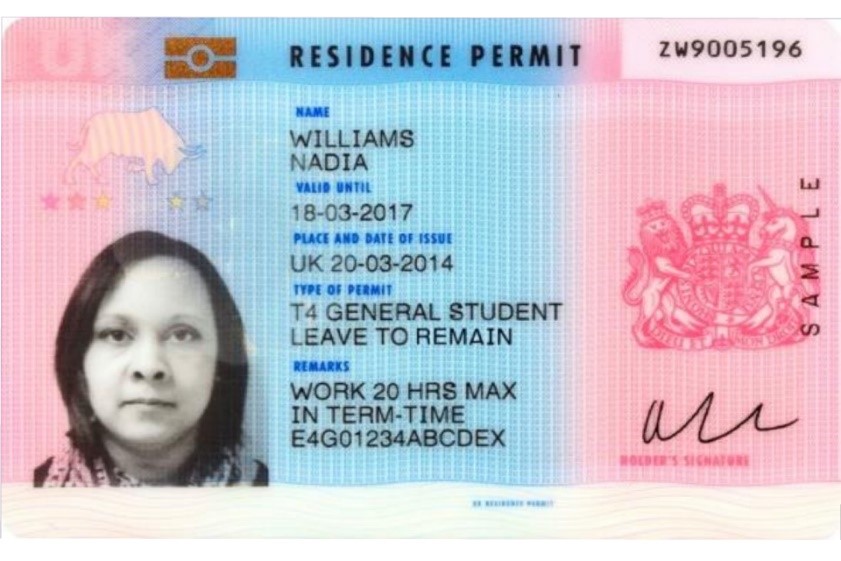
Biometric Residence Permit (BRP): The Biometric Residence Permit (BRP) is a crucial document for individuals living in England on certain visa categories or immigration statuses. It serves as official proof of your legal right to stay, work, study, or settle in the country. The BRP contains biometric information such as fingerprints and a photograph, making it a highly secure and reliable form of identification. This card not only validates your immigration status but also grants you access to essential services like healthcare, education, and employment. The BRP is an indispensable tool for daily life, helping you navigate various interactions, establish your identity, and ensure compliance with immigration regulations while residing in England.
National Insurance Number (NIN): The National Insurance Number (NIN) is a fundamental document for individuals living in England. It serves as a unique identification number that is crucial for various aspects of life, including employment, tax contributions, and accessing social services. The NIN ensures that your tax and national insurance contributions are properly recorded, facilitating your eligibility for state benefits, healthcare services, and pension schemes. Obtaining a NIN is a vital step for anyone working or residing in England, as it establishes your legal status and enables you to fully participate in the country’s social and economic systems.
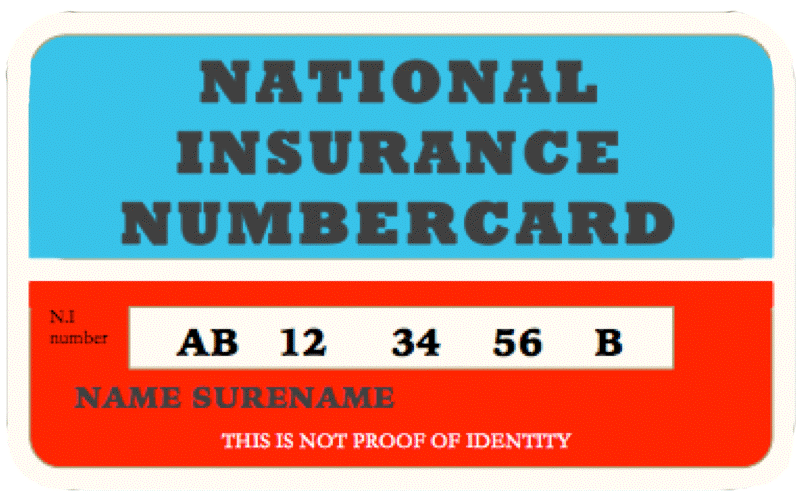
Bank Account: A bank account is an essential document for living in England, providing a crucial platform for managing your finances and participating in the economy. Opening a bank account allows you to securely store and manage your money, receive salaries or income, pay bills, and make transactions. Having a bank account is often a requirement for various activities, such as renting accommodation, setting up utility services, and receiving government benefits. It also enables you to access digital payment systems, online shopping, and other modern financial conveniences. A bank account is a practical necessity for integrating into daily life in England, facilitating financial stability and enabling you to fully engage in economic activities within the country.
Healthcare Documents: Healthcare documents are crucial essentials for living in England, ensuring access to necessary medical services and support. Registering with the National Health Service (NHS) is a key step, allowing you to obtain a medical card or NHS number. These documents facilitate your eligibility for healthcare, including doctor appointments, hospital treatments, and prescription medications. Healthcare documents not only offer peace of mind by providing you with access to medical care when needed but also contribute to your overall well-being and quality of life in England. They signify your entitlement to receive essential medical services, forming a vital link between you and the country’s healthcare system, and helping you maintain good health throughout your residency.
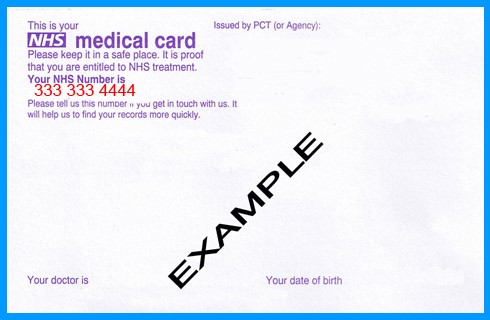
Driving License: A driving license is a pivotal document for living in England, offering the freedom and convenience of personal transportation. It serves as official authorization to operate a motor vehicle on the country’s roads. With a valid driving license, you can legally drive cars, motorcycles, and other vehicles, facilitating daily commutes, errands, and travel. It’s not only a means of independence but also often a requirement for certain jobs that involve driving. Additionally, a driving license may serve as a form of identification in various situations. Obtaining a driving license involves passing both a practical driving test and a written exam, ensuring that you are aware of and capable of adhering to road rules and safety regulations. Overall, a driving license is an essential tool for navigating life in England, enhancing mobility, and integrating seamlessly into its transportation infrastructure.
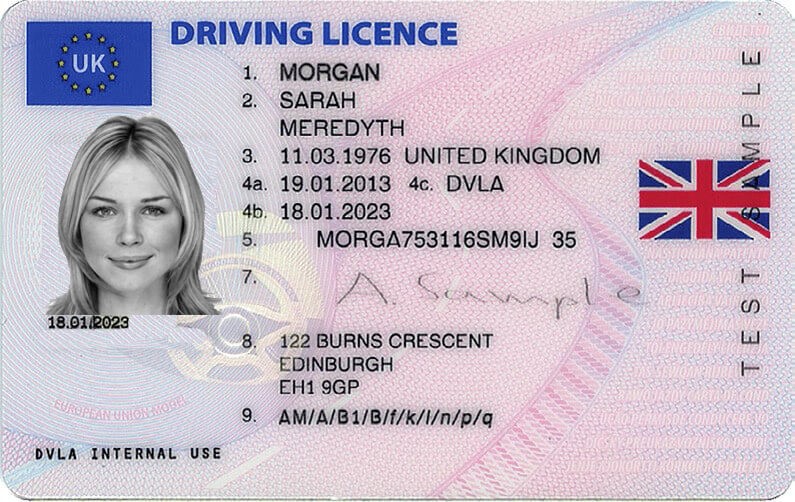
Insurance Documents: Insurance documents are vital essentials for living in England, providing financial protection and security in various aspects of life. These documents encompass different types of insurance, such as health insurance, home insurance, car insurance, and more. Health insurance ensures you have access to medical services without incurring significant expenses. Home insurance safeguards your property and belongings against unforeseen events like theft, accidents, or natural disasters. Car insurance is mandatory for drivers, covering potential damages and liabilities on the road. These insurance documents offer peace of mind by mitigating financial risks associated with emergencies or unexpected situations. They serve as a safety net, enabling you to navigate daily life and challenges confidently while minimizing potential financial hardships.
Always keep copies of these documents in a safe place and consider having digital backups as well. The exact documents you need can vary based on your specific circumstances, so it’s advisable to consult official government sources or seek advice from immigration professionals when planning your move to England.
Understanding your finance
- Understanding your finance
- Know Your Employment Type
- Understand your Pay Slip
- Analyze the Pay Transfer method
- Tax deductions
- Pension Planning
- Banking Cards
Importance of understanding the finance for immigrants: Understanding finance is of paramount importance for immigrants as they settle into a new country. It provides a roadmap for navigating the intricacies of the local financial system, enabling informed decision-making and fostering economic stability. Immigrants face unique challenges such as adapting to a new currency, unfamiliar banking practices, and different consumer norms. Developing financial literacy equips them to effectively manage their income, expenses, and savings, reducing the likelihood of falling into debt or financial distress.
Furthermore, a grasp of financial concepts empowers immigrants to leverage opportunities, make strategic investments, and plan for long-term goals such as education, homeownership, and retirement. By mastering finance, immigrants not only enhance their financial well-being but also contribute to the economic growth of their host country, becoming active participants in its financial landscape
Understanding finance while living in England is of paramount importance as it empowers individuals to navigate the complexities of the country’s economic landscape. It enables effective management of personal funds, ensuring that daily expenses, savings, and investments are well-balanced. A grasp of financial concepts enables individuals to make informed decisions about banking, borrowing, and investing, safeguarding their financial stability and future.
Moreover, understanding the intricacies of taxation and pensions ensures compliance with legal obligations and efficient retirement planning. In a dynamic economic environment, financial knowledge equips individuals with the skills to adapt to changing circumstances, make prudent choices, and secure their financial well-being in England’s context.
Know Your Employment Type: For immigrants in England seeking to understand their finances, it’s essential to be familiar with various employment types that can impact their income, benefits, and overall financial stability. England offers a range of employment arrangements, including full-time, part-time, temporary, and self-employment options. Full-time employment typically provides consistent income and benefits such as paid holidays, sick leave, and pension contributions, which contribute to long-term financial security. Part-time employment offers flexibility but may have fewer benefits.
Temporary or contract work can provide short-term income opportunities, but individuals should carefully plan for periods without work. Self-employment allows for independence but requires diligent financial management, including tax responsibilities and retirement planning. Understanding the implications of different employment types is crucial for effectively budgeting, saving, and investing, enabling immigrants to navigate the English job market while building a strong financial foundation.
https://www.gov.uk/employment-status
Understand your Pay Slip: A paycheck holds significant importance within the realm of finance for immigrants in England. It represents the tangible outcome of their employment efforts, reflecting their hard work and contribution to the local economy. For immigrants who might be adapting to a new currency and financial system, understanding the components of a paycheck is crucial.
It encompasses not only the gross earnings but also deductions for taxes, National Insurance contributions, and potentially pension contributions. Gaining clarity on these deductions ensures compliance with legal obligations and aids in budgeting accurately.
Moreover, comprehending the various benefits, such as paid leave and employer contributions, provides a holistic view of the overall compensation package. A clear understanding of the paycheck empowers immigrants to manage their finances effectively, make informed decisions about spending, saving, and investing, and ultimately contribute to their financial stability and success in their new home country.
https://www.gov.uk/understanding-your-pay
Analyze Pay Transfer method: The “Analyze Pay Transfer” method holds significant relevance for immigrants in England who are seeking to navigate their financial landscape. This approach involves a thorough examination of the process by which their salary is transferred from their employer to their bank account. For immigrants, especially those transitioning to a new currency and financial system, understanding this transfer mechanism is essential.
It entails assessing factors such as the timing of pay transfers, potential fees associated with international transfers, and exchange rates applied during the conversion of currency.
By scrutinizing these details, immigrants can make informed decisions about how to optimize their pay transfers, minimize transaction costs, and ensure that they receive their earnings most efficiently and cost-effectively. This method not only facilitates financial planning and budgeting but also empowers immigrants to make the most of their hard-earned income while navigating the nuances of the UK’s financial landscape.
https://www.wearepay.uk/what-we-do/payment-systems/bacs-payment-system/
Tax deductions: Taxes in payroll form a vital aspect of finance for immigrants in England. As newcomers to the country’s financial landscape, immigrants need to comprehend the role of taxes in their paychecks. In England, payroll taxes include income tax and National Insurance contributions, both of which are deducted directly from the earnings. Understanding the progressive nature of income tax and the tax bands helps immigrants anticipate the proportion of their income that will be taxed at different rates.
National Insurance contributions, on the other hand, fund important social benefits such as healthcare and pensions. By grasping these deductions, immigrants can accurately budget their take-home pay, ensuring they have a realistic picture of their disposable income. Moreover, comprehending the intricacies of taxes in payroll enables immigrants to meet their tax obligations, avoid penalties, and plan their financial future in alignment with the tax framework of their new host country.
https://www.gov.uk/running-payroll/deductions
Pension Planning: Pension planning holds essential significance for immigrants in England as they navigate their financial journey. It involves preparing for a secure and comfortable retirement by systematically contributing to pension schemes over the course of one’s working life. Immigrants should acquaint themselves with the UK’s pension landscape, which includes workplace pensions and personal pension options like Self-Invested Personal Pensions (SIPPs). Understanding pension contributions, employer matches, and government incentives is crucial to maximizing retirement savings.
Immigrants must also be aware of their eligibility for the state pension and how it factors into their overall retirement income. Engaging in pension planning early on allows immigrants to harness the power of compounding and make informed decisions about investment strategies tailored to their risk tolerance and goals.
By cultivating a comprehensive understanding of pension planning, immigrants can secure a financially stable and enjoyable retirement, ensuring that their hard work and efforts today translate into a prosperous tomorrow in their adopted home of England.
Banking Cards: Bank cards hold significant importance for immigrants in England as they navigate the financial landscape of their new country. Bank cards, including debit and credit cards, serve as essential tools for managing day-to-day transactions and accessing financial services. Debit cards are directly linked to a bank account, allowing immigrants to withdraw cash, make purchases, and pay bills conveniently.
They provide a secure and efficient way to manage expenses while keeping track of transactions through online banking. Credit cards, on the other hand, offer the flexibility of borrowing money for purchases and paying it back over time, helping immigrants build a credit history in the UK.
Understanding the nuances of bank cards, such as the potential for fees, interest rates, and credit limits, is vital to making prudent financial decisions. Immigrants can use bank cards to establish their financial identity, access emergency funds, and participate in the local economy with ease.
Credit Card: Credit cards hold significant relevance in the financial landscape for immigrants in England, as they offer a tool for managing expenses, building credit history, and accessing short-term credit. A credit card allows individuals to make purchases on credit, effectively borrowing money from the card issuer up to a predetermined credit limit.
For immigrants, credit cards can be particularly useful for establishing a credit history in their new country, which is essential for accessing future loans and favorable interest rates. However, responsible usage is key to avoiding debt traps. Understanding the terms and conditions, including interest rates, repayment schedules, and potential fees, is crucial. By using credit cards wisely, immigrants can improve their financial flexibility, take advantage of rewards and cash-back programs, and gradually build a positive credit profile that opens doors to various financial opportunities in England.
https://moneytothemasses.com/using-credit/credit-cards/best-credit-cards-in-the-uk
Debit Card: Debit cards hold particular significance for immigrants navigating the financial landscape of England. A debit card is a fundamental financial tool that allows individuals to access their bank accounts for everyday transactions. For immigrants who might be adapting to a new banking system, understanding how debit cards work is essential. When a purchase is made using a debit card, the amount is directly deducted from the individual’s linked bank account, eliminating the need to carry cash.
Debit cards also serve as a means of withdrawing cash from ATMs, providing convenient access to funds. In England, debit cards are widely accepted for various transactions, including shopping, dining, and online purchases.
They offer a safe and secure way to manage finances, as transactions are protected by PIN codes and often come with fraud protection features. Immigrants who understand and effectively use debit cards can easily integrate into the local financial ecosystem, manage their money efficiently, and enjoy the convenience of electronic transactions in their daily lives.
https://www.moneyhelper.org.uk/en/everyday-money/banking/debit-cards
Transportation in England
- Overview of the Transportation System in England
- Transportation Modes
Overview of the Transportation System in England
There are many options for transport in England. You can choose to travel by bus, ferry, train, taxi, airplane, or even drive on your own. The British transport network is one of the most advanced in the world, boasting a large number of paved roads, modern railways, airports, and so on. However, as you would expect it’s a highly populated country and the traffic in England might be a bit painful for you especially if you’re not used to waiting in queues.
Transportation Modes: The transportation system in England is a comprehensive network of various modes of transportation that facilitate the movement of people and goods throughout the country. The following are the major sources of transport in England:
Trains: The rail network connects major cities, towns, and regions, offering a range of services from local trains to high-speed options. The National Rail network covers England and extends to Scotland and Wales. It is operated by various train operating companies (TOCs) that provide services on different routes.
The major train operating companies in England are:

Underground and Metro Networks: In England, several cities have underground and metro networks that provide efficient and convenient urban transportation options for residents and visitors. here are some notable underground and metro networks in England:
Buses: Most UK towns and cities offer regular bus services. You can buy a ticket from the driver when you board, use a travel card or Oyster card or use a debit or credit card in some cases. Here are the famous buses provider in England:

Flights: Flights in England are an essential component of the country’s transportation infrastructure, connecting various cities, regions, and international destinations. With 24 international airports in the UK and a variety of cheap flights on offer, it’s easy to travel between UK cities and beyond. The major flight operators in England are:

Taxis: Taxis, also known as cabs or private hire vehicles, are a common mode of transportation in England, offering convenient and flexible options for getting around cities and towns. It is also becoming more common, and often better value, to book a ride through an app such as Uber or Bolt, depending on where in England you live. The major cab service providers in England are:

Health Care Insurance
- Understanding Health Care Insurance in England
- Essentials of Health Care for Newcomers
Understanding Health Care Insurance in England
If you’re thinking of moving to the UK, you’ll need to know the basics of navigating the British health system. It can be tricky to know what to look out for when you’re choosing health insurance. The level of care you need will depend on your lifestyle and the aspects of health you’re most concerned about.
The NHS is the cornerstone of healthcare in England. It provides a wide range of healthcare services, including general practitioner (GP) services, hospital care, specialist treatments, prescription medications, and more. You can go through it in detail in the England HealthCare System tab.

Essentials of Health Care for Newcomers: For newcomers to England, understanding the essentials of the healthcare system is crucial to ensure access to medical services and well-being. As a person granted humanitarian protection or refugee status, you are entitled to access the health services provided by the National Health Service (NHS) if you are living in England.
You can access the following services for free:
The NHS provides services to those who need medical treatment and can also help with contraception, family planning, healthy eating, and mental health.
General Practitioners (GPs) Registration: To access NHS services, including GP appointments, you should register with a local GP practice in your area. You can find and register with a GP by visiting the NHS website or contacting a nearby GP practice.
Medical Card (NHS Number): Upon registration, you will receive an NHS number and a medical card. The NHS number is essential for booking appointments, accessing services, and receiving care.
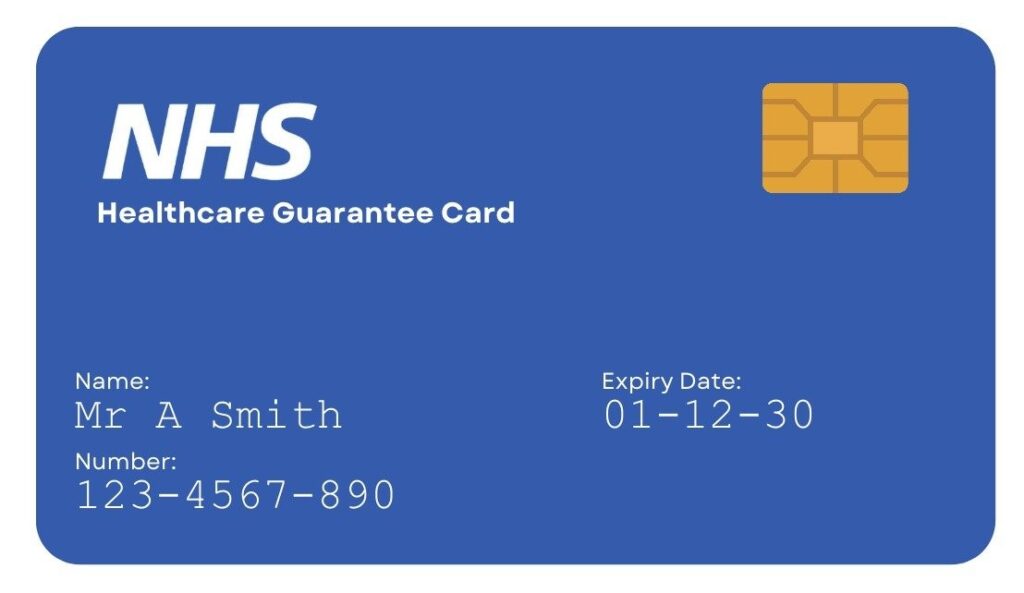
Emergency Care: In case of a medical emergency, dial 999 for immediate assistance or go to the nearest Accident & Emergency (A&E) department at a hospital. Emergency care is available to everyone, regardless of registration status.
Prescription Medications: If your GP prescribes medication, you can obtain it from a pharmacy. Some medications may require a prescription charge, but certain individuals are exempt from charges. Consider a Prescription Prepayment Certificate (PPC) if you need multiple prescriptions.
Non-Urgent Care: For non-emergency health concerns, make an appointment with your registered GP. They can diagnose and treat common medical issues and refer you to specialists if needed.

By familiarizing yourself with these essentials, registering with a GP, and actively participating in your healthcare journey, you’ll be better prepared to navigate the healthcare system and access the care you need in England.

Dos and Don’ts
- Newcomer Dos and Don’ts
- Emergency Services in England
- Professional Development
Newcomer Dos and Don’ts
Being a newcomer in England can be an exciting and enriching experience as you explore a new culture, adapt to a different way of life, and build new connections. Remember that adapting to a new country takes time, patience, and a willingness to learn and embrace new experiences. Engage with the local community, be proactive in seeking information, and don’t hesitate to ask for help or guidance when needed. Your journey as a newcomer in England can be a rewarding and transformative chapter in your life. Here are some key points to consider and tips for newcomers in England:

Dos: Here are the important things you need to do to settle in England:
Research and Plan Ahead: Research the area where you’ll be living, including housing options, transportation, and local amenities. Having a plan will help you feel more prepared.
Learn About Local Culture: Familiarize yourself with British customs, traditions, and social norms. Understanding local culture will help you integrate more smoothly.
Register with Authorities: Ensure you complete any necessary registrations, such as with local authorities, the NHS, and educational institutions (if applicable).
Open a Bank Account: Open a local bank account to manage your finances more easily and access services like direct deposit and bill payments.
Build a Support Network: Connect with local community groups, expatriate organizations, and neighbors to build a support network and make new friends
Explore Public Transportation: Familiarize yourself with the local public transportation system to navigate the city efficiently.
Stay Informed: Keep up-to-date with local news, events, and cultural happenings to fully immerse yourself in your new environment.
Practice Patience: Adapting to a new culture takes time. Be patient with yourself and allow for an adjustment period.
Take Care of Legal Matters: Ensure your immigration status, visa, and any required permits are up to date.
Network Professionally: Attend networking events and seek job opportunities in your field to connect with professionals and explore career options.
Don’ts
Don’t Neglect Legal Requirements: Ensure you have all the necessary legal documents and permits to avoid any issues with immigration or residency.
Don’t Overspend: Create a budget and manage your finances wisely. Avoid overspending, especially when you’re still getting used to the cost of living.
Don’t Isolate Yourself: While it’s important to stay connected with your culture, make an effort to integrate and engage with the local community.
Don’t Ignore Health and Safety: Familiarize yourself with local emergency services, healthcare facilities, and safety protocols.
Don’t Disregard Local Laws: Educate yourself about local laws and regulations to avoid unintentional violations.
Don’t Avoid Learning English: While English may not be your first language, improving your English skills will greatly enhance your ability to communicate and integrate.
Don’t Limit Yourself to Comfort Zones: Embrace new experiences and step out of your comfort zone. Trying new things will enrich your experience.
Don’t Overload Yourself: Set realistic expectations and avoid overcommitting yourself to too many activities or responsibilities.
Don’t Compare Constantly: While it’s natural to compare your new home to your previous one, avoid constant comparisons, as it may hinder your ability to fully embrace your new environment.
Emergency Services in England: There are different emergency services you can use in England that are essential for ensuring public safety and providing rapid response to a wide range of emergencies. These services are well-coordinated and work together to handle various situations effectively.
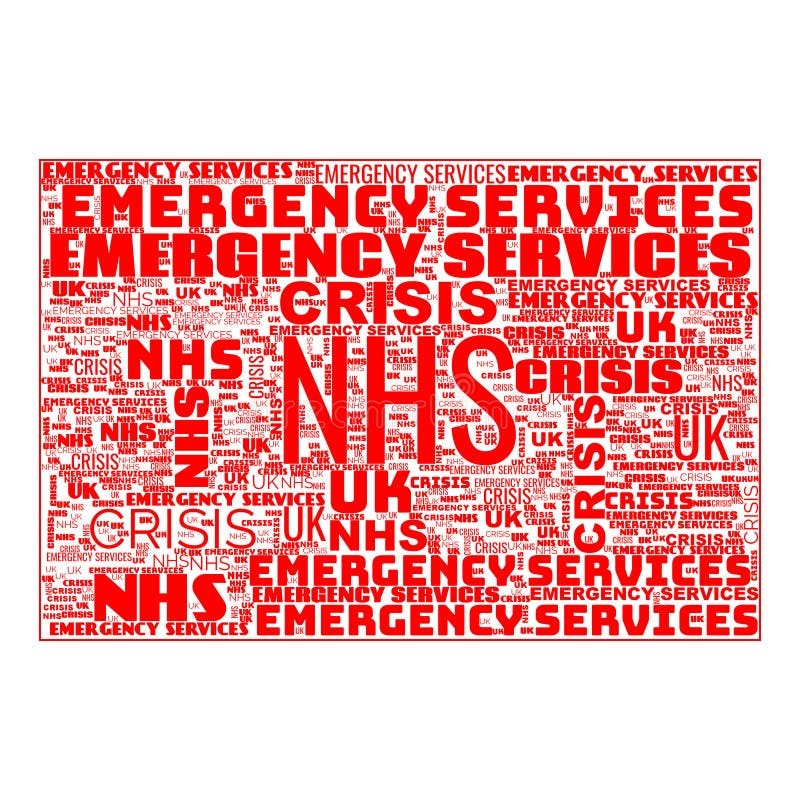 The main emergency services in England include:
The main emergency services in England include:
- Police Service
- Fire and Rescue Service
- National Health Service (NHS) Ambulance Service
- Coastguard
- Mountain Rescue Teams
- Air Ambulance Services
- Search and Rescue Helicopters
- Emergency Services Coordination
In case of an emergency, you can dial 999 or 112 (both are emergency numbers) to request assistance from the appropriate emergency service. The operator will ask for details about the situation and location to dispatch the necessary help.
Remember that emergency services in England are well-trained and equipped to handle a wide range of situations, from medical emergencies to natural disasters, and they play a critical role in ensuring the safety and well-being of the public.

Professional Development: Professional development in England is a key aspect of advancing your career and enhancing your skills and knowledge in your chosen field. Whether you’re a newcomer or a resident, investing in your professional growth can open doors to new opportunities and help you stay competitive in the job market.

Ways to Pursue Professional Development
- Further Education and Qualifications
- Continuing Education and Short Courses
- Professional Associations and Networking
- Conferences and Workshops
- Online Learning Platforms
- Mentorship and Coaching
- Volunteer and Internship Opportunities
- Soft Skills Development
- Language Improvement
- Personal Projects and Side Ventures
- Employer-Sponsored Training
- Career Coaching and Counseling
- Job Shadowing and Secondments
- Research and Publications
- Digital Portfolios and Personal Branding

Remember that continuous learning and development are essential throughout your career. Whether you’re looking to advance within your current organization or explore new career paths, investing in professional development will contribute to your success and personal growth in England’s dynamic job market.
Benefits of Professional Development: Professional development offers numerous benefits that can positively impact your career, personal growth, and overall well-being. Here are some key advantages of investing in professional development:
- Skill Enhancement
- Career Advancement
- Increased Confidence
- Networking Opportunities
- Staying Current
- Innovation and Creativity
- Job Satisfaction
- Increased Employability
- Leadership Development
- Adaptability
- Personal Growth
- Credibility and Expertise
- Improved Communication
- Job Security
- Global Opportunities
Ultimately, professional development is an investment in yourself, your career, and your future success. It empowers you to reach your full potential and thrive in a dynamic and competitive professional landscape.
